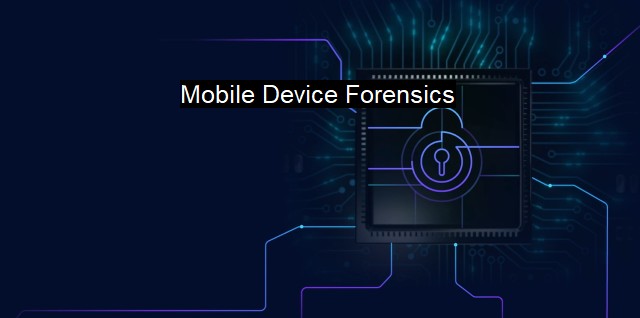What are Mobile Device Forensics?
Securing Mobile Devices through Forensic Investigations and Antivirus Integration: Assessing the Challenges and Strategies for Retrieving Evidence
Mobile Device Forensics is a specialized area that revolves around extracting, analysing, retrieving and preserving information from mobile devices such as smartphones, GPS devices, tablets, and similar digital media. This branch of digital forensics has seen exponential interest and growth given the ubiquitousness, namely in the case of smartphones, which have become essentially minicomputers with expansive capabilities and vast personal data stores.While information stored on typical computers can also be influential in various investigations, data from mobile devices have proven uniquely significant. This primarily stems from how virtually every person who owns a mobile device carries it most times, leading to the creation of uniquely personalized data reflecting the user’s habits, behaviors, communications, and numerous activities.
Mobile Device Forensics, therefore, scrutinizes an extensive range of data forms like text and multimedia messages, call logs, contact lists, images, videos, notes, calendar details, browsing history, geographical location data, and application-specific data. it often stones unturned because, with the thoroughness of mobile device forensic tools, electronic footprints that have otherwise been deleted or hidden may also be recovered.
On that note, the investigative procedure hangs on the versatility of these mobile forensic tools, designed to cope with diverse operating systems such as Android, iOS, etc., multiple types of mobile hardware, and a spectrum of file systems. Driven by this versatility, the fundamental techniques that employ these tools include manual, logical, chip-off, JTAG, and micro read methods. Most professionals, aiming to exploit as much data as possible, may blend two or more techniques.
Mobile device forensics holds immense prominence in the realm of cybersecurity particularly from the standpoint of antivirus swarm defense. Today's smartphone users retrieve and search, perform financial transactions and shop online, less mindful about the security of their smartphones and scarcely realizing the immense rich mine of data they are carrying and constantly updating.
Many cyber criminals target these devices to steal this data, install malware or attempt other malfeasance acts. By analyzing these compromised mobile devices, cybersecurity and antivirus specialists are better positioned to comprehend the nature and operational mechanisms of these attacks, accomplishing two goals. First, to identify the source and possibly pursue legal penalties, and second, to fortify security, develop advanced and efficient mobile antivirus solutions, and consequently protect other users from falling prey to similar attacks.
Analyzing data during an antimalware investigation is deemed particularly crucial when examining persistent threats. Persistent threats may manifest themselves over an extended period, siphoning off sensitive data undetected and often difficult to trace in terms of sources and end destinations. Exploring mobile devices as part of the forensic process may help diagnose the roots and patterns of these devastating and hard-to-fathom threats.
A sound strategy in cybersecurity rests on the willingness and ability to continually adapt to emerging threats. Mobile device forensics plays a pivotal role concerning this. Regardless of future developments or changes in this sphere, we can conclusively state: In a world increasingly dependent on mobile devices and security, Mobile Device Forensics will remain an inseparable and indispensable facet of cybersecurity, progressively evolving to face the complex web of threats seen in our technologically interconnected world.

Mobile Device Forensics FAQs
What is mobile device forensics?
Mobile device forensics is the process of collecting, preserving, analyzing, and presenting electronic data extracted from mobile devices such as smartphones, tablets, and other portable devices. It is used as part of the investigative process for gathering evidence in a criminal or civil case.What types of data can be collected during mobile device forensics?
Mobile device forensics can collect various types of data from a mobile device, including call logs, text messages, emails, GPS data, social media activity, browsing history, app usage, photos, videos, and other files.How is mobile device forensics used in cybersecurity and antivirus protection?
Mobile device forensics is an essential part of cybersecurity and antivirus protection as it enables investigators to identify and analyze cyber threats, malware, and other suspicious activity on a mobile device. This information can then be used to develop and improve cybersecurity and antivirus defense strategies.What are the challenges of mobile device forensics?
Mobile device forensics can be challenging due to factors such as device encryption, data fragmentation, and the vast amount of data that needs to be processed. Additionally, different mobile devices and operating systems may require different tools and techniques for forensic analysis, making the process more complex.| | A | | | B | | | C | | | D | | | E | | | F | | | G | | | H | | | I | | | J | | | K | | | L | | | M | |
| | N | | | O | | | P | | | Q | | | R | | | S | | | T | | | U | | | V | | | W | | | X | | | Y | | | Z | |
| | 1 | | | 2 | | | 3 | | | 4 | | | 7 | | | 8 | | |||||||